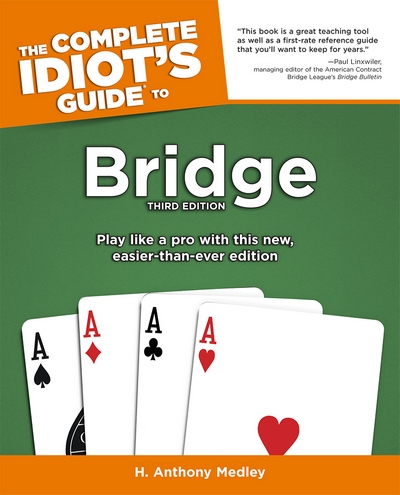| The first and second editions of Complete Idiot's Guide to Bridge by H. Anthony Medley comprised the fastest selling beginning bridge book, going through more than 10 printings. This updated Third Edition includes a detailed Guide to Bids and Responses, along with the most detailed, 12-page Glossary ever published, as well as examples to make learning the game even easier. Click book to order. Available in all bookstores and on Kindle. | ||
|
Annie (4/10) by Tony Medley Runtime 120 minutes. OK for children. Lerner and Lowe’s Camelot is full of wonderful music. It was made into one of the worst musicals ever filmed, starring the barbarian drunkard, Richard Harris (he drank at least three bottles of hard liquor daily), but the alternative would have been Richard Burton who starred in the play on Broadway and was equally alcoholic, and Vanessa Redgrave, hardly a gorgeous heartthrob, as Guinevere. Worse, neither were singers (although Harris became one after learning how to talk songs by playing Burton’s role in Camelot), so the beautiful music was wasted. Nobody has tried to remake Camelot with stars who could do the music justice. Why, then, would a mediocre musical like Annie get another shot? The 1982 original film, that had quality people who knew how to make musicals, like Bob Fosse protégé Ann Reinking and Bernadette Peters, barely made back its production cost and is 1,231 on the all-time gross list. Camelot, on the other hand, more than doubled its production cost and made a reasonable profit for Warner Bros., regardless of how bad it was. Now, for some unknown reason, Columbia gives Annie another shot. But instead of a redheaded girl with blank round circles for eyes who is constantly saying “Gloriosky” and “Leapin’ lizards” (which is what Annie was in the comic strip) and a baldheaded Daddy Warbucks, in this Annie she’s black (Quvenzhané Wallis) and there is no baldheaded Daddy Warbucks. In fact there’s no Daddy Warbucks. Instead we have Jamie Foxx, who as everyone knows, is also black, as billionaire Will Stacks who is running for Mayor of New York City. So maybe Columbia is aiming for a different audience. Alas, they are still left with the mediocre music. Annie was really a one song show (“Tomorrow”). The first rendering of the song by Annie is pretty lackluster, maybe because of the uninspired choreography. I couldn’t find a credit for anyone as choreographer, so maybe Quvenzhané just winged it; that’s what it looked like. Director Will Gluck (who also wrote the relatively hackneyed screenplay with Aline Brosh McKenna) finally wises up and closes with a smashing reprise of “Tomorrow” by the full cast under the closing credits, which is too little too late. If you’ve stayed for that long, though, you might as well stay another couple of minutes. Unfortunately, that was the best part of the movie.
|
||
